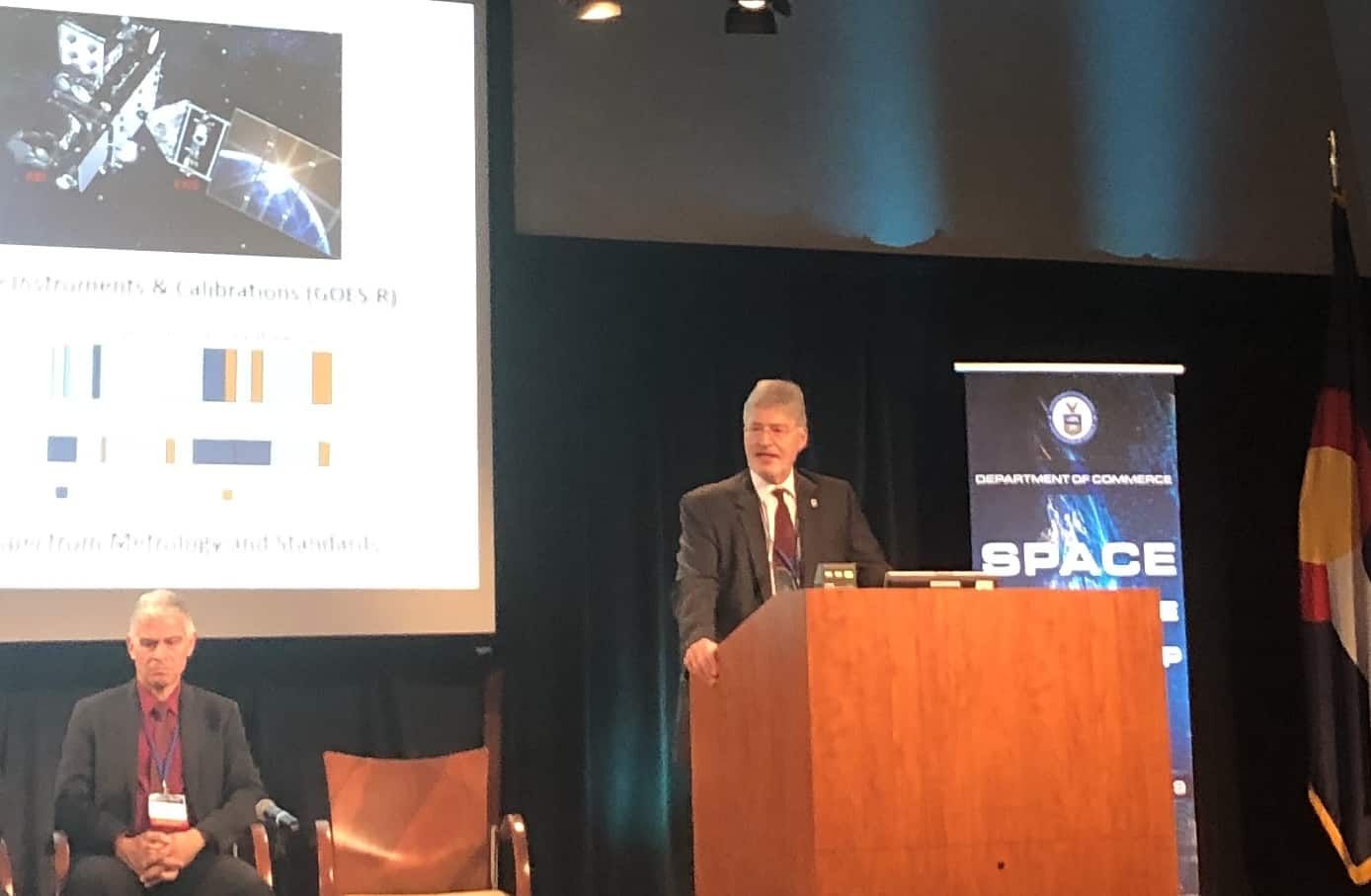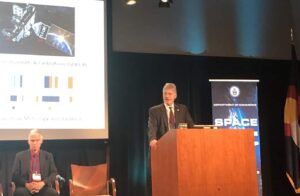Public, private collaboration key for space commerce

BOULDER — As the United States moves closer to putting an astronaut on Mars, government organizations and the private aerospace industry must be more collaborative than ever.

Close working relationships benefit space agencies by allowing them to focus on the big picture and companies get a boost from government funding and research and development.
Representatives of the public and private arms of the domestic aerospace sector gathered to discuss this issue Thursday in Boulder at the Space Commerce Workshop. The event, held at the National Institute of Standards and Technology, was organized by the U.S. Department of Commerce Boulder Laboratories, the DOC’s Office of Space Commerce and the University of Colorado.
SPONSORED CONTENT
“We are in an era of technology convergence,” Undersecretary of Commerce for Standards and Technology and NIST director Walt Copan said. “This is a time when we’ve seen so many elements of technology come together to drive innovation and new invention.”
Public sector research has driven the aerospace industry since before U.S. President John F. Kennedy announced in 1962 that the country was determined to put a man on the moon. But increasingly, aspects of space exploration and technology development are being absorbed into the private sector, which experts say is largely a positive development.
“We are in a time when new tools are being developed to support public-private partnerships that are absolutely essential to the innovation pipeline for U.S. industry,” Copan said. “Technology transfer [between the government and private firms] is a critical part of engagement that can take many forms.”
Fluid management, solar propulsion, precision landing, and surface construction and excavation technologies are priority areas for collaboration.
“Part of our strategy is for commercial activity to help us seed assets. We can’t do this mission on our own,” NASA technology transfer strategist Steve Gonzalez said of the nation’s mission to Mars.
NASA has developed a program to increase engagement with the startup community.
“We were not getting as many startups licensing our technology as we were hoping for… and one of the barriers was licensing fees,” Gonzales said.
The Startup NASA program makes those licenses more accessible and encourages university and research institutions to engage with the startup community.
It’s not just aerospace companies that can benefit from collaboration with organizations such as NASA or NIST. Technology developed in space often has Earth-bound applications.
“What happens in space is transforming industries on Earth,” Gonzalez said, citing recent ag-tech irrigation innovations spawned by aerospace technology.
Michael Hurowitz, chief operating officer of Boulder-based Orbital Microsystems Inc., said public-private aerospace collaboration could benefit from increased transparency. If companies and agencies have a better understanding what one another are doing, it would decrease duplication of efforts and increase efficiency.
In addition to more transparency, Hurowitz recommended increasing facilities-sharing opportunities and the development of creative financing mechanisms for small businesses and startups.
“You are seeing diversity of applications and users coming into the space domain,” said Ian Chistensen, a program director at the Secure World Foundation. As the industry becomes more diverse and more accessible, it becomes more complicated to regulate.
Industry best practices and sustainability efforts are just as important in space as they are on Earth, he said.
The United States won’t be alone in shaping the future of space exploration.
“We are in unprecedented territory when it comes to elements of global competitiveness,” Gonzalez said. Domestic agencies and firms must not only compete with their foreign counterparts, but also collaborate.
“This is an international environment,” he said.
BOULDER — As the United States moves closer to putting an astronaut on Mars, government organizations and the private aerospace industry must be more collaborative than ever.

Close working relationships benefit space agencies by allowing them to focus on the big picture and companies get a boost from government funding…
THIS ARTICLE IS FOR SUBSCRIBERS ONLY
Continue reading for less than $3 per week!
Get a month of award-winning local business news, trends and insights
Access award-winning content today!





